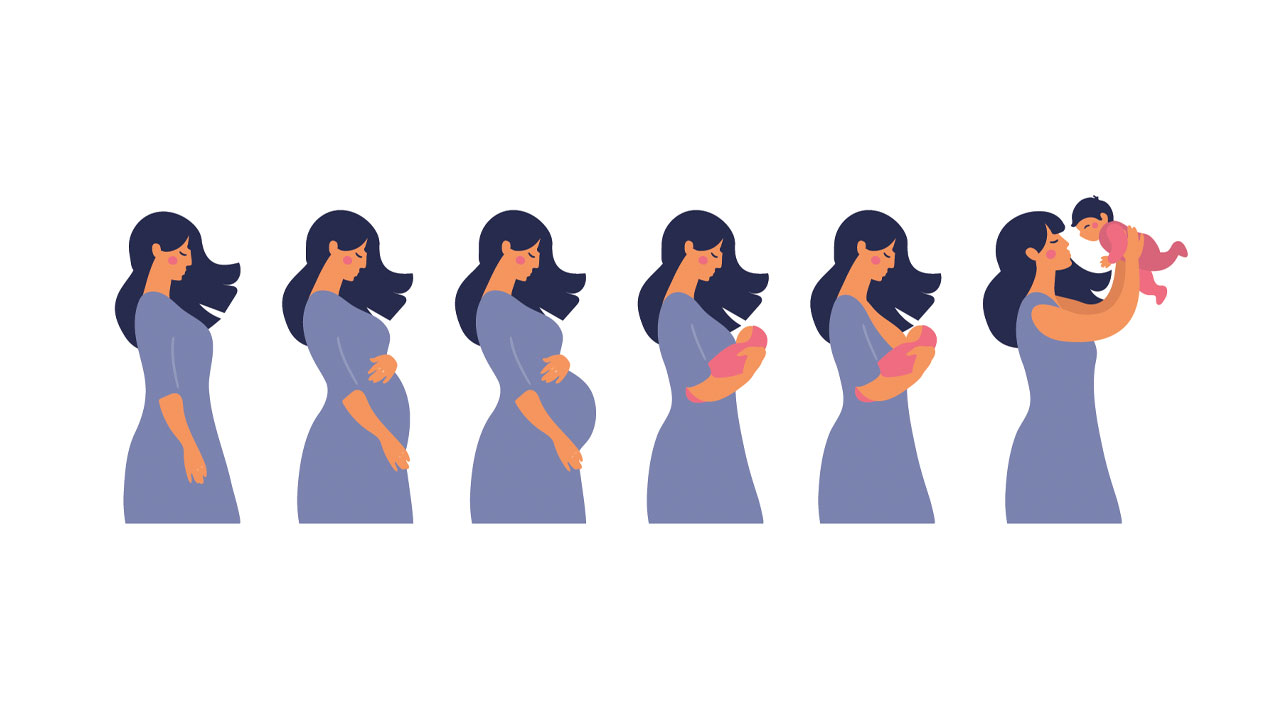How Hormones During Pregnancy Affect Dental Health

Pregnancy hormones can affect a woman’s physical health in numerous ways, but many women are unaware of their impact on their dental health. Maintaining good oral hygiene practices and regularly visiting their dentist is as important for the baby’s dental health as it is for the mother.
Increased Risk of Gum Disease
The hormone progesterone, which is at higher levels during pregnancy and when taking progesterone birth control, can make women more susceptible to gum disease and poor gum health. Progesterone encourages the production of prostaglandins, substances that cause blood vessel inflammation in gum tissues. These blood vessels dilate during pregnancy due to elevated progesterone levels, making gums more vulnerable to bacteria.
This gum infection, known as gingivitis, typically occurs during the second trimester and symptoms include redness, sensitivity, swelling, and bleeding of the gums. Although bleeding tends to occur when brushing or flossing, you should not stop cleaning your teeth at least twice a day. Instead, use a soft-head toothbrush and make an appointment with your dentist.
If gingivitis is left untreated, it can lead to periodontal disease, where the infection damages the gums and jawbone. Most women’s gum health improves after pregnancy but, if left unchecked, longer-term issues can arise. Links have been discovered between periodontal disease and premature births, making staying on top of your gum health even more vital during pregnancy.
The Appearance of Pregnancy Epulis
Another way that pregnancy can affect the gums is the development of round growths that usually appear between the teeth. These growths, often known as “pregnancy epulis” or “pregnancy tumors,” are benign and are caused by excess bacterial plaque.
Pregnancy epulis is red and tends to bleed easily. Like other gum issues, they usually appear during the second trimester. Often they disappear naturally after birth; however, if they do not subside, your dentist can surgically remove them.
Problems Caused By Morning Sickness
The increase in estrogen and progesterone that a woman experiences during her pregnancy can result in nausea and vomiting. As well as being extremely unpleasant for the expectant mother, this sickness can affect her oral health because the regurgitated stomach acids can damage the teeth enamel and cause decay.
The best way to tackle this increased risk of tooth decay is to maintain thorough oral hygiene practices during pregnancy. However, although it might sound counterintuitive, it’s best to avoid brushing your teeth immediately after vomiting, as the acid covering the teeth combined with the brushing motion can wear down tooth enamel. Instead, rinse your mouth well with water, then fluoridated mouthwash. Brush your teeth well about an hour later.
Teeth Damaging Cravings
During pregnancy, many women experience food cravings and, depending on what they are craving, impact their dental health. If you crave sugary or highly acidic foods, you should make sure to thoroughly brush your teeth after eating them, as lingering acids severely damage teeth.
Some women crave more unusual items such as ice, coal, and chalk. Some of these cravings would be dangerous to consume, while others, such as ice, could damage your teeth. If you are experiencing strange cravings, mention it to your physician as it could be a sign of nutrient deficiency, such as a lack of minerals.
Make Dental Health a Priority During Pregnancy
The hormone fluctuations pregnancy causes can put women at a higher risk of dental health issues, so it’s crucial they brush and floss their teeth twice a day and visit their dentist regularly.
Our friendly team at Hinsdale Dental is experienced at treating pregnant women and children and ensure your comfort as well as high-quality dental care. Schedule a check-up with us today.
Return to Blog